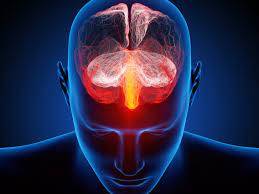Migraine: Causes, Symptoms, Treatments, and Management Strategies
Introduction:
Migraine is a neurological condition characterized by recurrent, intense headaches often accompanied by other symptoms such as nausea, vomiting, and sensitivity to light and sound. It affects millions of people worldwide, significantly impacting their quality of life. Despite being a common ailment, migraine remains widely misunderstood, leading to misconceptions and inadequate treatment. In this comprehensive guide, we delve into the intricacies of migraine, exploring its causes, symptoms, treatments, and management strategies.
Understanding Migraine:
1. What is Migraine?
- Definition and classification of migraine.
- Distinction between migraine and other types of headaches.
2. Causes of Migraine:
- Genetic predisposition and familial history.
- Neurological and hormonal factors.
- Triggers: Identifying common triggers such as stress, certain foods, weather changes, hormonal fluctuations, and sleep disturbances.
3. Symptoms of Migraine:
- Aura: Visual disturbances or sensory changes that may precede the headache phase.
- Headache phase: Characteristics of migraine headaches, including intensity, location, and duration.
- Associated symptoms: Nausea, vomiting, sensitivity to light (photophobia), and sound (phonophobia).
4. Diagnosis of Migraine:
- Clinical evaluation: Assessing medical history, symptoms, and triggers.
- Diagnostic criteria: Guidelines for diagnosing migraine according to the International Classification of Headache Disorders (ICHD).
5. Treatment Options:
- Acute treatments: Over-the-counter and prescription medications for relieving migraine symptoms during an attack.
- Preventive treatments: Medications, supplements, and lifestyle modifications to reduce the frequency and severity of migraines.
- Alternative therapies: Exploring complementary approaches such as acupuncture, biofeedback, and herbal remedies.
6. Lifestyle Management:
- Stress management techniques: Relaxation exercises, mindfulness meditation, and cognitive-behavioral therapy.
- Sleep hygiene: Establishing a regular sleep schedule and creating a conducive sleep environment.
- Diet and hydration: Identifying trigger foods and maintaining a balanced diet with adequate hydration.
- Exercise: Incorporating regular physical activity while being mindful of exertion triggers.
7. Coping Strategies:
- Education and self-awareness: Understanding migraine triggers and warning signs to better manage the condition.
- Support networks: Seeking support from family, friends, and healthcare professionals.
- Mental health support: Addressing the emotional impact of living with chronic pain through therapy or support groups.
8. Emerging Research and Future Directions:
- Advancements in migraine research: Investigating novel treatment modalities, including neuromodulation devices, monoclonal antibodies, and gene therapy.
- Personalized medicine: Tailoring treatment approaches based on individual genetic profiles and biomarkers.
- Integrative approaches: Integrating conventional and complementary therapies for comprehensive migraine management.
Conclusion:
Migraine is a complex neurological disorder that requires a multifaceted approach to management. By understanding the causes, symptoms, and triggers of migraine, individuals can empower themselves to seek appropriate treatment and adopt lifestyle modifications to mitigate its impact. With ongoing research and advancements in migraine care, there is hope for improved outcomes and quality of life for those affected by this debilitating condition.




No comments yet
Be the first to share your thoughts!